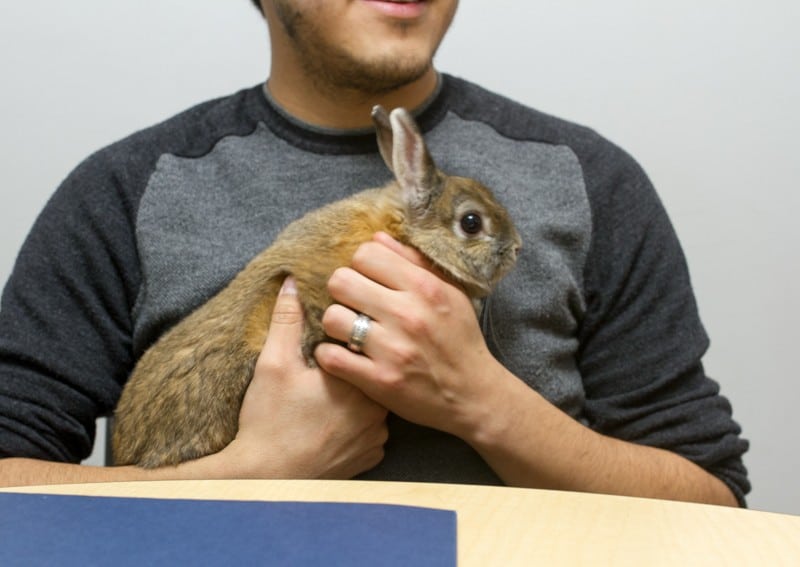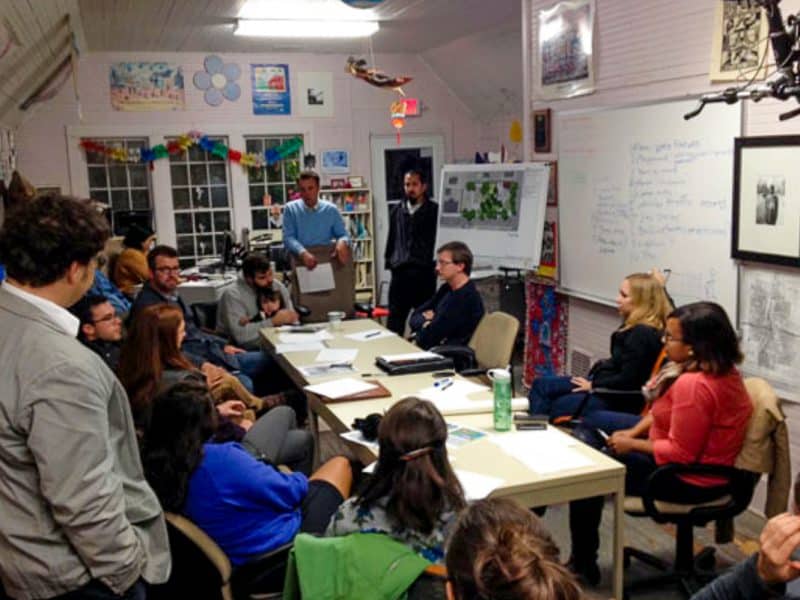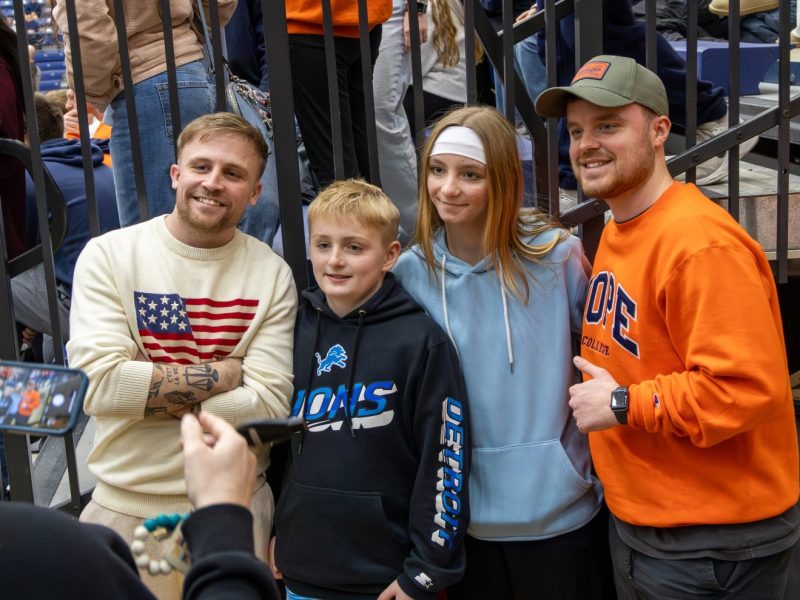G-Sync: LZ Granderson returns to Michigan
LZ Granderson will return to his hometown to present at the sold-out annual ACLU Luncheon in Grand Rapids later this month. In a special G-Sync interview, he reflects on current events, parenting and the process of writing with Tommy Allen.
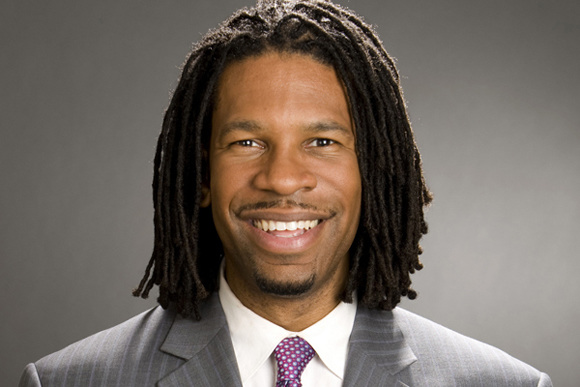
It’s hard to imagine that it has been three years to the day since LZ Granderson stood on stage at Grand Rapids Civic Theatre and delivered a very powerful (and much-shared) presentation at TEDxGrand Rapids. On May 14, LZ Granderson returns home to a sold-out crowd as the keynote speaker at the 2nd annual ACLU of Michigan luncheon at Frederik Meijer Gardens.
In advance of his arrival, Rapid Growth’s Publisher and Lifestyle Editor Tommy Allen sits down with Granderson to catch up on current events, from Ferguson to Baltimore to the Supreme Court; compare notes on the role of media in society; and chat about what it’s like to be the father of a teenage son about to leave the nest for college.
_____________________
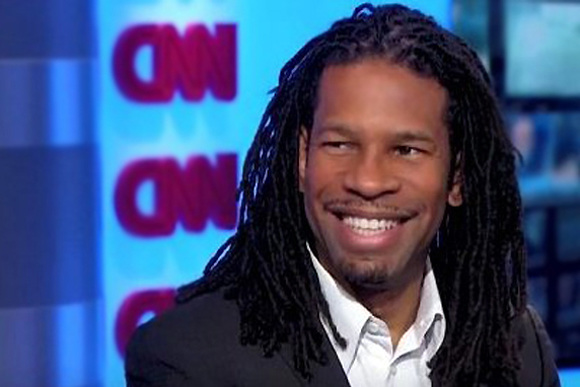
Tommy Allen: LZ, I cannot believe that it has been three years since your TEDxGrand Rapids talk in 2012. And now three years later, I am amazed at what has happened since your presentation, but also at the events of the last few weeks with the Supreme Court hearing a landmark case on marriage equality as another equality battle is being waged on the streets of Baltimore. You must have been very busy writing these last weeks?
LZ Granderson: Actually, last week I didn’t write anything about the Supreme Court arguments and I’m not even sure if I tweeted anything [he didn’t], as I was all about Baltimore. That’s not to say I wasn’t aware what was going on at the Supreme Court, I just needed to know more about what was happening at the street level in Baltimore.
TA: How did the news in Baltimore affect the Granderson’s Chicago adobe?
LZ: When all this was happening in Baltimore and the Supreme Court, it was fast approaching decision day.
TA: Decision Day? Is this a parenting matter?
LZ: Yes. We have an 18-year-old son about to depart high school and May 1st is the deadline for letting colleges know if you’re going to attend or not. My son was really torn. He had some wonderful choices — everything from great scholarships to great locations and the programs.
TA: But….
LZ: Well, a big part of the reason Baltimore took such precedent is that I’m about to release this 18-year-old child that I’ve raised; this young black man is about to go out into the world. And honestly, my fear is for his safety as I look around.
TA: It is after May 1, so where is your son going?
LZ: NYU (New York University) to study education reform.
TA: So decision day is a big deal for all parents with students heading to college, but are there other factors, like race, that played into his selection?
LZ: Absolutely. He didn’t want to go into an environment in which he would feel any level of isolation or feeling as “the other.” And so the diversity of a college campus was important to him and it did eliminate some schools. He had applied to a school in Florida, received scholarship money to go, but ultimately decided not to go to Florida because of “stand your ground” law. He literally said to me, “Not going to Florida, for safety concerns.”
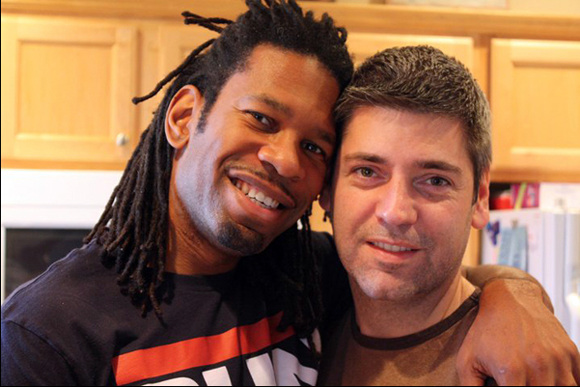
But his decision wasn’t just based on a city or state where a campus was located. Sometimes it was the campus itself. On a few he felt like he was the only African American, as he would not see any while on a campus visit.
TA: So this is a fitting example of looking into the realities of modern family lives, regardless of how you define a family. How does your work inform your broader view of the world?
LZ: Being on the ground in Baltimore was to just observe. Having been to many of the protest marches over the last 24 months in places like Ferguson and Florida, I was seeking (to do) something more than just say somethin’ based upon a past experience. I wanted to make sure I did some reporting, to observe what was happening.
TA: Were these protests’ motivations the same, as we often believe these events to be?
LZ: You know, it was true to form with a familiar setting, and familiar circumstances. Yes, they’re all interlinked because of this automatic, intrinsic sort of a function of, necessarily, the tensions or overall intimidation or scary factor of the black man. But I think it’s interesting that Baltimore has some really important differences from what happened in Ferguson or what was happening in New York City.
How it plays out, and in the circumstances and environment that it plays out, they’re all very, very different. But ultimately, they led many to the same conclusion, which is, you know, an unarmed, dead, black– or– I won’t say “unarmed,” because Freddie Gray was indeed armed — he had a knife, but he didn’t do anything wrong. The knife he carried was legal, and he actually wasn’t being arrested for anything. He looked at the cops, he ran away, and they locked him up. We have to be reminded that carrying a knife is actually a Second Amendment right.
TA: You mention these incidents are “different” but most viewers aren’t seeing the nuances of how they are not the same.
LZ: They all ended with the same thing — with a black male ending up dead in what appears to be a very unjustified manner by police or someone trying to pretend like they’re some sort of vigilante or law enforcement person. So, they’re all different.
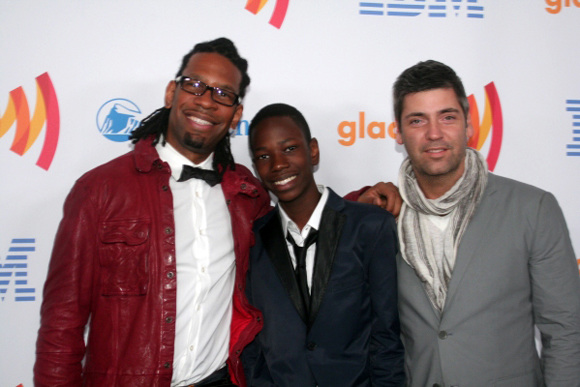
Baltimore was more the same in terms of the energy and the anger and the frustration, but it had some different economic, education, and political things that separated it from the other cities.
TA: That reminds me of a project I conducted for the Kellogg Foundation a few years ago, where I read scientific studies that measure the impact over a lifetime on a person of color being subjected to micro-aggressions based simply on the color of their skin.
LZ: Well, this base fear is intrinsic racism that’s been woven into the fabric of this country since the very beginning.
TA: So we, whether as an adult or a society or even as members of a media company, can all be teaching racism in how we react or present the way something is playing out in society?
LZ: Look at the way Officer Dan Wilson described Michael Brown. He dehumanized him by comparing him to a demon, saying he was like this “beast” that couldn’t be stopped by bullets. Describing Brown in a very inhuman sort of way is something that we have seen in the media time and time again, whether it’s in our early films like “Birth of a Nation,” which the American Film Institute still hails as one of the best films of all time, even though it is meant to demonize and scare the crap out of white people that the black man is going to come and rape all the white women.
When we get to the news media, we illustrate news by manipulating it to support something that’s not honest. One thing conservatives like to do is talk about the high rate of black-on-black crime, but we never talk about the stats for white-on-white crime. In fact, the FBI has discovered that you have a more than 85 percent chance of being murdered by a white person. And yet, we don’t characterize this as “white-on-white” crime.
TA: Back to Baltimore: did you experience what Geraldo did when he visited last week?
LZ: When you are editorializing (as I do), then you’re making a commentary. So it’s a different thing than simply reporting, so there’s a little more weight on you to really perform something that’s gonna hopefully lift and give sense to what we’re experiencing — beyond just giving the information and saying, “Well, sort it out, folks.”
Our job is to take these observations and help others connect dots. We help people who think these (topics and events) exist only in silos or compartmentalize things. A writer can see that they’re all interwoven, that they’re all connected.
So whether you’re talkin’ about how biases dealing with LGBT people stem from the same sort of thought process as biases that deal with race or religion, if we are doing our job correctly then we are helping people connect meaning.
We have come a long way and are getting better about it now, but it’s taken a long time before some people could grasp this new narrative, especially for Gen X-ers and older, you know, who often grew up with the race factor being a big part of the stories we reported on crime—a system that differentiates between a black suspect and a white suspect.
TA: So like the word “thug” and its use?
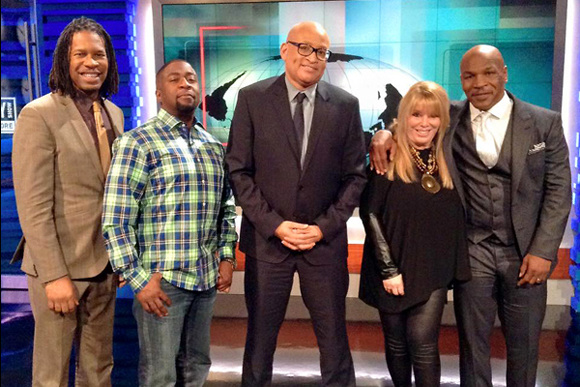
LZ: Yes, we are making that distinction, now, in terms of how the word “thug” is used. The counter balance was brought out much more quickly, as seen by the stories of white people rioting; they’re described as other things, but when black people are involved, we call it rioting “thugs,” as if we’re somehow “un-American.” Whereas the white crowd, when they are acting as a “fired-up sports fans” tearing up shit and burning, looting, (chuckling) just like everyone else, but they’re reported on the news as these over-exuberant sports fans. So our job is to point those things out.
TA: Is there any hope emerging from what you are seeing over the last couple years?
LZ: Well, I found one of the things that really encouraged me happened last summer. For the most part, until last summer, most of the folks that we saw protesting were black. But when the Eric Garner (I Can’t Breathe) video came out, and there was no indictment, the protests erupted with not just blacks, but I saw folks with rainbow t-shirts, rabbis, young students, and school teachers all marching together. I told a friend that I even saw a sign that said “Gays and lesbians support Eric Garner.” If we look at the protests that were happening over this past weekend– Baltimore and Philadelphia and some other cities– it wasn’t just black people.
TA: So the history of struggle in America is really the understanding that the pain of one is the pain of us all? This could be a great place to talk about the journey of our nations’ LGBT.
LZ: I believe (it plays) a significant role in how LGBT rights have changed dramatically over the past 20 years. When President Clinton was campaigning and was talking about overturning the ban on gays serving openly in the military, you still had a great deal of people living in fear of being out in this nation. At that time, a significant chunk of the country believed that if you were particularly a gay male, then you either had AIDS or you were soon going to get it and die of it soon.
AIDS was a huge fear. But so was losing your job or your housing. (IN those days) it was pretty acceptable to gay-bash on national television and not give any sort of, you know, retribution. It was still pretty comfortable to withhold jobs or even to blatantly discriminate against employees, you know, for being gay. So when you think about the climate of the 1990s and how it slowly began to change, we could say it was from the visuals of folks like Ellen coming out that change began to happen.
TA: I think back on those days, like seeing you from afar conversing with Jeff Swanson at East Hills’ Sons and Daughters (the city’s first coffee shop / gay and lesbian bookstore) and cannot help but feel a loss of community spaces that are longer here for the LGBT of our city. Is this why you moved?
LZ: (Laughs) No. It was because my partner got a job in Chicago. I love Michigan. But it was sad to read that Diversions, where I met my partner, has closed. I discovered this on my last trip to Grand Rapids, where I also discovered the place I once worked, the Grand Rapids Press, was demolished. (I grabbed a couple of bricks.)
TA: So you are nostalgic for bricks and mortar that are no longer a part of our city’s fabric?
LZ: These places are just places in the end. For me, living here was always about relationships. You know, it is very, very sad news to see the Grand Rapids Press and Diversions go, but the people that I was friends with while at these places, I am still friends with now after all these years.
I think it’s important that the idea of building community isn’t centered on a particular location, but centered on relationships. Our future needs to be about being open to the process of continuing to find ways to foster and maintain healthy relationships.
The Future Needs All of Us.
Tommy Allen for Rapid Growth Media
Lifestyle Editor’s Note: Images provided by LZ Granderson. For more information on LZ Granderson’s appearance at the ACLU luncheon, to view his TEDxGrandRapids talk or Rapid Growth’s 2012 profile, please visit the links embedded.

